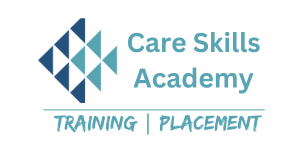With increasing global temperatures and a rising demand for comfortable living and working environments, air conditioning systems have become essential in homes, offices, and industrial settings. As a result, the need for skilled professionals who can install, maintain, and repair these systems has never been higher. If you’re looking to enter the HVAC (Heating, Ventilation, and Air Conditioning) industry or upgrade your technical skills, an AC Repairing Course can be the perfect gateway to a rewarding career.
Why Choose an AC Repairing Course?
- High Demand for HVAC Technicians: With the surge in demand for air conditioning units, there’s a parallel rise in the need for qualified HVAC technicians. Businesses, homes, and even vehicles rely on efficient cooling systems, and maintaining these requires specialized skills. By taking an AC repairing course, you’ll gain the expertise needed to meet this demand, ensuring stable job opportunities.
- Wide Range of Applications: AC repair skills are versatile. Whether you’re working in residential areas, industrial sites, or commercial spaces, the knowledge and techniques you gain in an AC repairing course will be applicable in various settings. This opens doors to a range of job roles, from field technicians to HVAC supervisors.
- Hands-on Learning: One of the key benefits of an AC repairing course is its practical approach. You won’t just learn theory, but also receive hands-on training, working directly with AC units. This real-world experience is invaluable and prepares you for the actual challenges you’ll face in the field.
What Will You Learn in an AC Repairing Course?
A comprehensive AC repairing course typically covers a wide array of topics, designed to equip you with both foundational knowledge and advanced techniques. Here’s a breakdown of what you can expect:
- Basic Principles of Air Conditioning Systems: You’ll start with the basics of how air conditioning units work, understanding the refrigeration cycle, heat transfer, and the role of refrigerants. This is essential for diagnosing and fixing any issues that arise in AC systems.
- Component Identification: Learn about key AC components such as compressors, condensers, evaporators, thermostats, and fans. Understanding the function of each part helps in pinpointing and troubleshooting faults more effectively.
- Installation and Maintenance: Whether you’re installing a new AC unit or maintaining an existing one, this part of the course will provide detailed training on proper installation techniques, preventive maintenance practices, and how to optimize the efficiency of an AC system.
- Fault Diagnosis and Repair: This is the heart of the course. You’ll learn how to diagnose common issues such as refrigerant leaks, electrical failures, compressor problems, and airflow blockages. You’ll also be trained in how to repair these issues quickly and efficiently to restore the system’s functionality.
- Electrical Components and Wiring: Air conditioners have complex electrical systems. You’ll learn how to safely work with electrical components, read wiring diagrams, and troubleshoot electrical faults, ensuring safe and reliable operation of the AC unit.
- Refrigerant Handling and Safety: Since refrigerants are a critical part of cooling systems and often require careful handling, the course will include safety protocols for managing refrigerants, including environmental regulations, leak detection, and proper disposal practices.
Benefits of Completing the Course
- Career Advancement: Whether you’re a beginner or an experienced technician, completing an AC repairing course enhances your skills and opens up opportunities for career advancement. You could work as a field technician, start your own AC repair business, or progress into specialized roles like HVAC system design.
- High Earning Potential: Skilled AC technicians are in high demand, and the earning potential reflects that. With the right training, you can secure well-paying jobs or even establish your own successful business.
- Job Flexibility: HVAC technicians enjoy a range of employment options, from working for large companies to freelancing or starting their own repair business. The skills you acquire are transferable, meaning you can work in various industries, including residential, commercial, and industrial settings.
- Stay Relevant with Industry Trends: AC systems are constantly evolving, with new technologies and environmentally-friendly options emerging. An AC repairing course ensures you stay updated with the latest trends and techniques, keeping your skills relevant and in demand.
Conclusion
An AC repairing course is a practical and strategic investment in your future, offering not only essential technical skills but also a stable and growing career path. Whether you’re passionate about electronics, enjoy hands-on work, or are looking to transition into a high-demand field, learning AC repair opens the door to numerous opportunities.
By enrolling in an AC repairing course, you can build a solid foundation, gain specialized knowledge, and enter the workforce as a skilled professional ready to tackle the challenges of modern cooling systems. So, don’t wait—join the course, develop valuable skills, and start building a rewarding career in the HVAC industry today!

